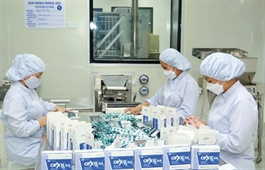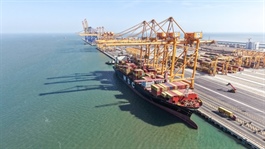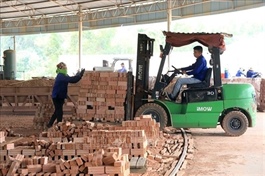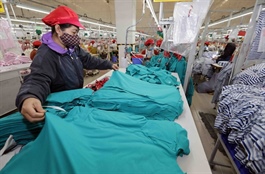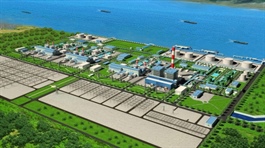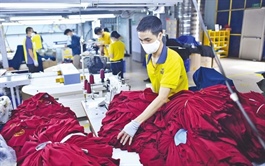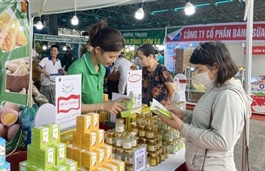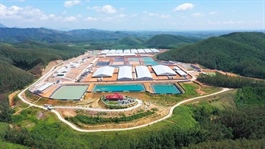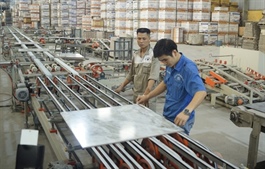Long-term viability needed for sustainable fuel scale-up
Long-term viability needed for sustainable fuel scale-up
As Vietnam increases the use of sustainable fuel in aviation, major players are seeking to gain more market share - while air carriers may seek support to push use forward.
Airbus is now seeking to build long-term partnerships, support infrastructure development, and foster innovation in sustainable aviation fuel (SAF) production to promote adoption in Vietnam.
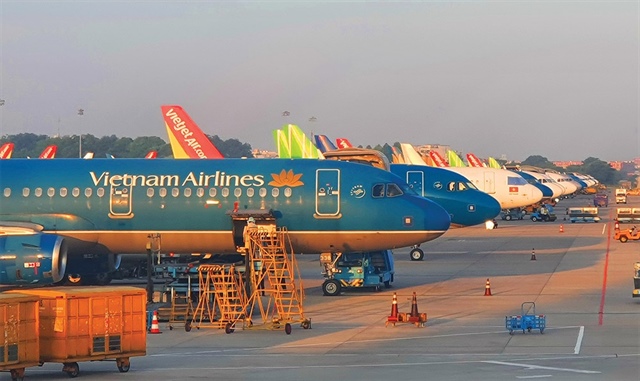
Long-term viability needed for sustainable fuel scale-up, Photo Le Toan |
In late May, the company announced an agreement with Vietjet on a new order for 20 A330-900 wide-body aircraft. Like all Airbus planes currently in production, the aircraft can operate on blends of up to 50 per cent SAF and aims to achieve 100 per cent capability by 2030.
Helene Burger, Airbus head of International Cooperation and Sustainability, told VIR, “Operating flights with SAF in Vietnam align with our broader commitment to sustainable growth and the reduction of CO2 emissions within the aviation sector. Airbus views SAF as a key pillar of international aviation’s decarbonisation strategy, particularly in countries like Vietnam, where there is strong potential for SAF production.”
Like Airbus, Boeing is also working with Vietnamese authorities, airlines, and manufacturers to develop SAF for domestic consumption and export opportunities.
Michael Nguyen, managing director at Boeing Vietnam, said it conducted a study earlier in 2025, exploring the agriculture waste to SAF potential across ASEAN.
“Vietnam ranks the fourth in biomass volumes with 88 million tonnes of agriculture biomass waste generated per year. The agricultural waste biomass with the highest potential includes rice, cassava and corn. These feedstocks are found in large biomass concentrations in the Mekong Delta, Dak Lak, and Phu Yen regions,” he said.
According to the Ministry of Construction, SAF is produced from renewable sources such as used cooking oil, animal fat, agricultural by-products, and urban waste, and has the potential to reduce greenhouse gas emissions by up to 80 per cent compared to traditional jet fuel. SAF can be blended with traditional fuel and used directly for existing aircraft without changing the technical infrastructure.
Vietnam has great potential for bio-materials, accounting for nearly 20 per cent of the total regional potential, second only to Indonesia and Thailand. As shown in Boeing’s assessment of bio-based feedstocks in 11 Southeast Asian countries, reserves in the region could produce about 45.7 million tonnes of SAF per year by 2050, meeting about 12 per cent of global demand.
Many other countries have also regulated SAF policies for international and domestic flights, such as the United States, Australia, Singapore, Thailand, and the United Kingdom.
In alignment with the requirement, air carriers in Vietnam have moved to adapt to the EU’s SAF regulations when operating flights to this region, while preparing conditions to participate in the Carbon Offsetting and Reduction Scheme for International Aviation (CORSIA) run by the International Civil Aviation Organization (ICAO).
Align with global needs
Vietjet, Vietnam’s largest private airline, operated its first flights using SAF in October 2024, departing from Vietnam to Melbourne and Seoul, with the fuel provided by Petrolimex Aviation.
Vietjet has also partnered with reputable international partners to research, develop, supply, and implement SAF, in line with Vietnam’s commitment to achieve net-zero emissions by 2050.
Similarly, Vietnam Airlines was the first airline in Vietnam to use SAF when one year ago, it operated one such flight from Singapore to Hanoi.
For flights departing from the UK, Vietnam Airlines also uses SAF at a rate of at least 2 per cent from 2025 and gradually increases to 10 and 22 per cent in 2030 and 2040, respectively.
Deputy Prime Minister Tran Hong Ha in a meeting in late May emphasised the urgent need to develop a master plan for SAF development, participating in the CORSIA.
“Participation in the CORSIA is not only an international responsibility, but also an opportunity for the Vietnamese aviation industry to improve its capacity and proactively adapt to increase technical standards. SAF is also an important part of a strategy for developing a circular, green, and sustainable economy,” he said.
He asked domestic petroleum production and processing enterprises to draw up plans to develop SAF production, including technology, land, tax, finance, and market assessment to ensure efficiency and avoid internal competition.
The leader also required the Airports Corporation of Vietnam to coordinate with aviation fuel suppliers to review and develop storage infrastructure, pipelines, and SAF fuel filling systems at major international airports.
Aviation expert Tuan Nguyen said producing SAF at scale requires investment in specialised infrastructure and technology, which may take time to establish in Vietnam.
“Sourcing sustainable feedstock and refining it into SAF also involves complex supply chains that will need to be developed in coordination with local industries. Lastly, regulatory frameworks and policies are key to supporting SAF’s long-term viability, as well as ensuring alignment with international SAF standards,” Nguyen said.
He added that like any new technology, SAF production costs are initially higher due to limited supply chains and production capacity. Partnerships across the aviation industry, such as joint initiatives and government support, can also help make it more affordable.
Meanwhile, the Ministry of Agriculture and Environment shall preside over and coordinate with relevant parties to develop a legal framework for the carbon market, implement a carbon credit exchange mechanism, and recognise the aviation industry’s emission calculation method in accordance with ICAO standards.
“The Ministry of Finance and the Ministry of Foreign Affairs should study the fee collection mechanism for international flights departing from Vietnam; utilise tax policies and financial support to encourage the development of the domestic SAF market; limit the export of raw materials for domestic SAF production; and coordinate with the ICAO and the European Union in the negotiation process to ensure unity and harmonisation of common standards,” he requested.
A financial burden
The cost of using SAF, however, is an issue that some air carriers may seek support for.
According to Vietnam Airlines, the operating costs of its flights to and from Europe will increase by $4.8 million per year when using SAF. Currently, the price can be double, or even up to six times higher.
“SAF will increase financial challenges for airlines in the path of recovery amid global uncertainties and headwinds,” a representative admitted.
The Civil Aviation Authority of Vietnam (CAAV) forecasts that in the period of 2025–2030, the use of SAF could increase the fuel costs of the Vietnamese aviation industry by about $25 million, equivalent to $4.5–5.5 million a year. Therefore, the development of support policies is deemed extremely necessary.
“This causes airlines’ operating costs for flights from Europe to Vietnam to increase, thus increasing product prices and reducing the competitiveness of Vietnamese goods in the European market,” said Do Hong Cam, deputy director of the CAAV.
According to the CAAV, the financial burden is forecast to increase as in addition to ReFuel EU Aviation, Vietnamese airlines operating international routes must also participate in CORSIA, with the voluntary phase expected to start early next year.
It is estimated that with the cost of purchasing carbon credits to offset emissions in the voluntary phase, the lowest cost that Vietnam Airlines has to pay is more than $13 million, but the highest could be more than $92 million.
Other Vietnamese airlines such as Vietjet and Bamboo Airways also have to spend a significant amount of money due to the impact of the CORSIA.
The Ministry of Construction has been asked to develop a pilot decree on the use of SAF and implementation of the CORSIA in the aviation industry, including for domestic flights.
Aviation expert Ngoc Nguyen said EU airlines are considered to be at the greatest disadvantage because they are based in the EU and all their outbound flights depart from EU airports.
“Non-EU airlines, including Vietnam Airlines, will also be affected when flying to Europe because on the return flights departing from EU airports, if refuelling is required, the fuel loaded at EU airports will cost more than usual because it must contain a certain percentage of SAF fuel,” Nguyen said.
- 10:04 11/06/2025



